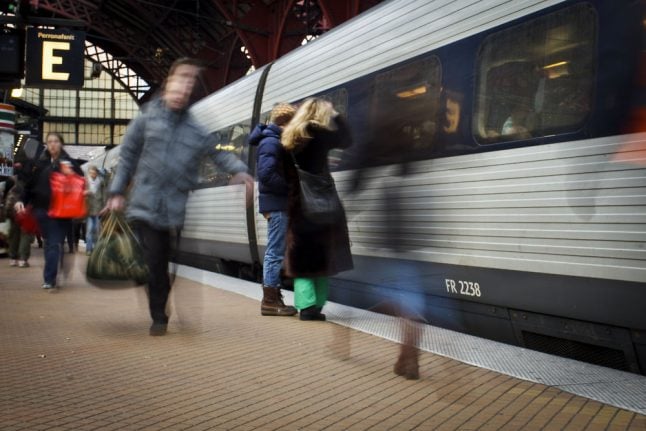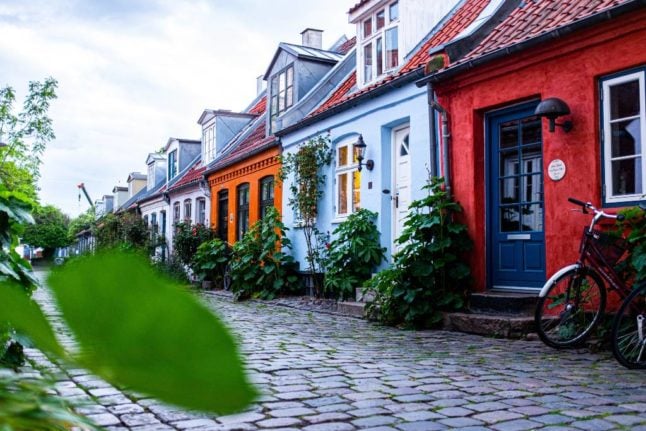According to Kristian Weise, CEO of Cevea, “Denmark is facing demographic changes and we will be short of labour in near future. Since 2000 alone, the number of Danish nationals in the working age has decreased by 13.3 percent. Denmark therefore needs foreign labour to support the workforce.”
The Confederation of Danish Industry (Dansk Industri, DI) surveyed 465 companies in Denmark and found that 60 percent were facing challenges in filling vacancies.
DI director Steen Nielsen noted that the Danish economy is growing and that for this to continue, companies must have access to the labour they need.
Companies are sometimes forced to refrain from bidding or are unable to deliver an order because they do not have enough employees, the DI director added.
Meanwhile, the Danish Society of Engineers (IDA) has expressed deep concerns over the shortage of professionals in the fields of engineering and natural science. Despite a higher number of university places, there will be still a deficit of around 10,000 people by 2025, DR reported.
Other sectors which could be affected by labour shortages include health and social care, the hotel and restaurant industry and cleaning and construction companies.
The so-called ‘paradigm shift’, a new which reflects the policy of preferring repatriation to integration of refugees, is another blow to the shortage of work force. Some 8,700 employed refugees face being sent home after the law was passed earlier this year, media Mandag Morgen reported.
Despite all these reports, the anti-immigration Danish People’s Party (DF), a parliamentary ally to the coalition government, has come up with a new proposal which will impact the country’s foreign work force. This time, the target is EU residents and highly professional and skilled labour.
The proposed bill is the third one in the parliament in last three years which has aimed to change rules on for changing permanent residency.
In January 2016, parliament passed a bill requiring six years of residency in Denmark for foreign (non-EU) nationals to be eligible for permanent residency.
In May 2017, another bill was passed, this time increasing the residency requirement to eight years. Both bills also saw other residency criteria also tightened.
The new bill, put forward by DF on March 12th, proposes that EU citizens will not be eligible to apply for permanent residency in Denmark until they have lived in the country for eight years, an increase from the existing five-year requirement.
Other tighter rules in the DF proposal include stricter requirements on language skills, and the abolition of a rule which enables expedited permanent residency if other certain conditions are fulfilled.
The proposed bill, B143, violates an EU directive (2004/38/EC), which holds that EU citizens who have resided legally for a continuous period of five years in the host member state have the right of permanent residency there.
According to 2017 figures from the Ministry of Higher Education and Science, 80 percent of foreign graduates from Danish universities leave Denmark within two years after completing their studies.
This is probably because of the uncertain nature of settling down in Denmark: a 2016 Aarhus University study found that immigration rules in Denmark are changed every three months.
Frequent changes and constantly tightening the requirements for permanent residency creates a basic sense of uncertainty and lack of predictability. It not only makes it difficult to live a normal life, but people who think they are on the right track towards getting permanent residency find that they face yet another new set of requirements.
A permanent residency permit provides internationals and their accompanying families the opportunity to start their own business, set up a firm, or start a university programme without having to worry about visa extension. This is crucial for peace of mind, without the worries of potentially being told to leave the country should you lose your job, become sick, get divorced, widowed or otherwise become unable to fulfil the strict income or employment requirements.
Foreign professionals who have been working hard to fulfil the stringent supplementary requirements for expedited permanent residency face having to wait up to four more years if the new bill is passed. EU citizens could be waiting three years longer than they expected to.
If rules for settlement and permanent residency are constantly changed, it will be harder for Danish employers to attract and retain skilled foreign staff. Danish employers will even struggle to retain Danish nationals with foreign spouses who do not meet requirements for family reunification.
This will only result in another upset to an already-challenged labour market in Denmark. The consequence of this is reduced economic growth in the country, shutting down firms and people educated by Danish taxpayers putting their skills to use elsewhere in the world.
Danish politicians should think twice before Denmark loses elite foreign professionals.
READ ALSO: EU citizen? Here's how your free movement rights apply in Denmark
Naqeeb Khan is a research graduate of the University of Glasgow, Scotland and currently resides in Denmark. He is president of Green Human Resources and an executive member with the Danish Green Card Association (DGCA). He can be contacted via email.



 Please whitelist us to continue reading.
Please whitelist us to continue reading.
It thought this was just me but its true. Their effort to keep people out of the country that is not ethnically danish is effecting people like me. I came here to study and wish to work but the constant changes keep effecting me negatively and i feel id rather go elsewhere take my skills then stay here. For no other reason but that i feel the danish government does not appreciate what i can offer here.